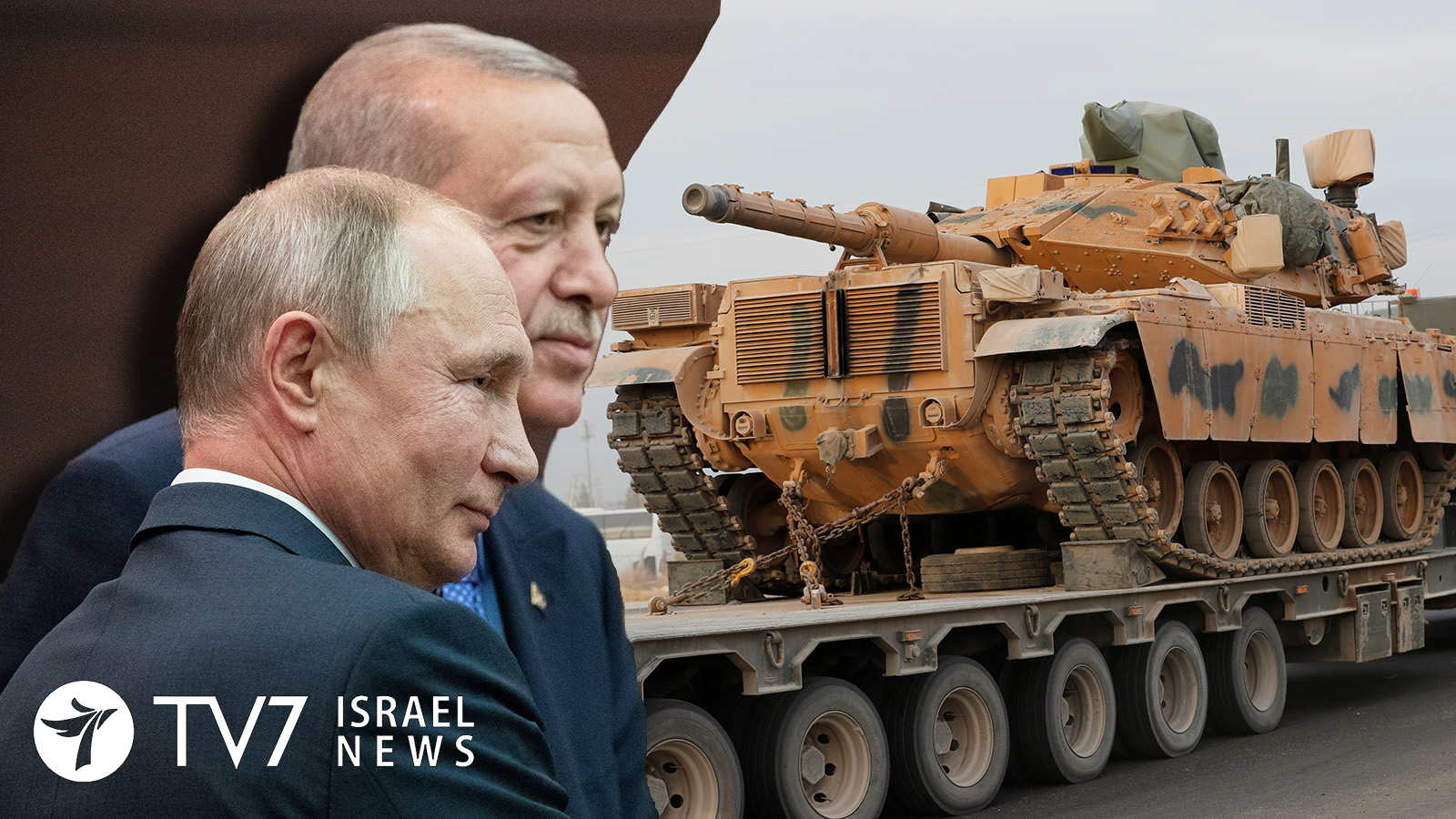The Syrian army accelerated its offensive from the south and east of Idlib overnight, backed by Iranian-proxies and Russian aerial support.
Recent flight data and ship-tracking the further reinforcement of Russia’s aerial and naval operations in the Arab Republic. Syria. Three Federation warships sailed through Turkey’s Strait of Bosphorus, in addition to an announcement from the Russian Defense Ministry that two Navy frigates were being deployed to bolster its Mediterranean force. The supplemented firepower is in alignment with a statement by Russian President Vladimir Putin, who was cited in local media as saying, “We are not going to fight against anyone. We are going to create conditions so that nobody wants to fight against us.”
The Russian leader hosted Turkish President Recep Tayyip Erdogan for talks in Moscow. The summit was part of Ankaran-initiated efforts to reach a ceasefire in Syria to the mutual benefit of f both Russia and Turkey, while also squelching a possible conflagration between the two powers. “We as usual have something to discuss, but now the tensions in the well-known zone, in the region of Idlib, have grown to such a degree that the situation requires our direct, private talks,” said Putin before the start of the meeting. Before delving into the most challenging matters, the Russian leader also expressed his condolences for the deaths of 34 Turkish troops in a joint Syrian-Russian bombardment. “It is always a tragedy when people die,” said Putin, adding that, “Unfortunately, as I have already said in the telephone conversation, no one including Syrian army knew of their (Turkish soldiers’) location.”
President Putin further leveled a vague warning to his Turkish counterpart over the fragility of their current ties if the situation in Syria remains unresolved. “In this time the Syrian soldiers also suffered. Syrian army suffered serious losses. So, we must talk it all through all the situation we have today, first – in order to avoid such situations in the future, second – to avoid spoiling Russian-Turkish relations, which me and – as I know – you treat with care and cherish,” he said.
President Erdogan voiced faith that “the steps we take today and the right decisions we make will certainly ease the situation,” and described relations between the two countries in the defense, trade and other sectors as ‘never better.’
The warming relations between Ankara and Moscow over the course of the past several years were indeed a cause for concern of Turkey’s NATO allies, most notably Washington. “The main concern,” said U.S. Special Representative for Syria James Jeffrey, is Turkey’s purchase of Russia’s sophisticated S-400 surface-to-air system. “This is a problem that is not the basis of a propaganda from the FETO organization and the PKK,,” said Jeffrey, adding that “it is very, very, serious concern for the U.S. Congress and for our defense establishment.”
In spite of the chilled relations between Ankara and Washington; the American envoy underscored that the United States is actively assisting Turkey in Syria. “There is a set of steps we have already taken, the humanitarian ones you’ve seen, we have done some military coordination and information sharing this week,” said the U.S. Envoy for Syria. Regarding the need for Europe to increase its support for Turkey in particular, and NATO in general, Jeffrey went on to underscore that “One of the principles that both the President and the U.S. Congress share is that this should be a collective effort. A collective effort not just of Turkey and the United States but of our NATO allies essentially the Europeans and we are pressing the Europeans to contribute a great deal as well.”
The U.S. call for Europe to contribute more to Turkey’s efforts comes at a time when Ankara is making every effort to send as many as possible illegal migrants into Europe. And while Greece is stepping up its efforts to repel the coordinated influx; Turkey has deployed special police forces to force migrants back to the border of the European Union.
Turkish Interior Minister Suleyman Soylu announced that, “To halt the push-back (of migrants) we have deployed 1,000 fully-equipped special police forces” to the border. While warning “we will not provide an opening to the maltreatment of people there,” the Turkish Minister said he would “like to express that we have taken the necessary measures to protect our borders from a push-back and to prevent their (Greeks) several attempts that were made in the framework of violation of the international rules.”
In efforts to step an influx of illegal migrants, the High Representative of the European Union Josep Borrell agreed to pay Ankara an additional €170 million during a meeting with Turkish President Erdogan yesterday. Borrell said the humanitarian aid should be used “to continue assisting the most vulnerable people in Syria,” which comes in addition to € 60 million specifically earmarked for the “crisis in northwest Syria.”
“In all our meetings, I had the opportunity to express our understanding for the difficult situation Turkey is currently facing. But also stressed that the current developments in the European borders are not leading to any solution,” said the EU Foreign Policy Chief, stressing that “we have also asked (Turkey) not to encourage further movement of refugees and migrants towards European Union border.”
